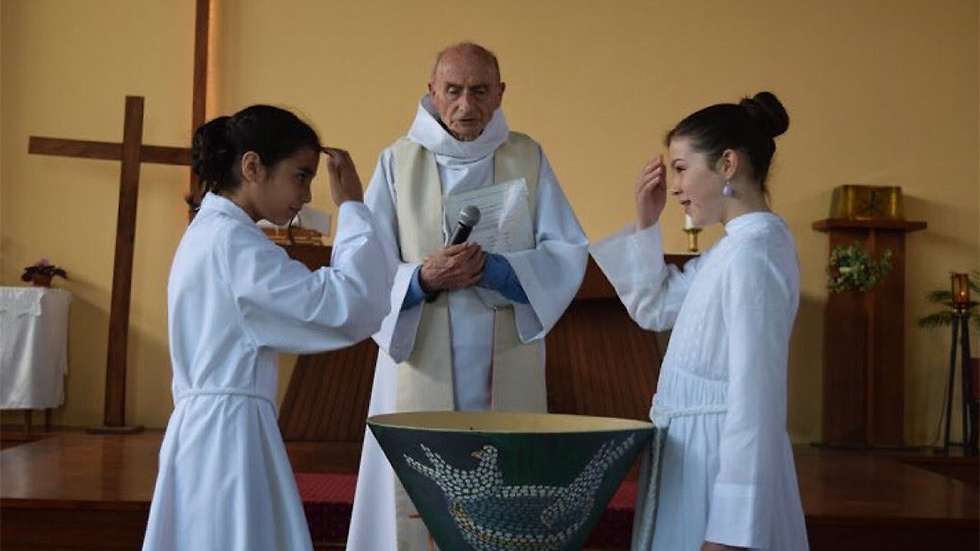Op-ed: The dwindling devout of French Catholicism have redefined themselves and sought to organize in the fashion of the country’s Jewish community; yet, especially after the terrorist attack in a Norman church, even secular republicans argued that ‘the eldest daughter of the Church’ does not have a distinct Catholic community, as it’s a defining and historical part of Frenchness.
Paris — It used to be the Tour de France that would raise to the headlines, albeit for only a short time, anonymous towns and villages across France. Last week, it was ISIS: Before the terrorist attack in a church, few in France had ever heard of Saint-Etienne-du-Rouvray, the small village along the Seine that, since the Industrial Revolution, has become a charmless suburb of laborers outside of Rouen.
Many were also surprised to hear of a church that holds mass in the middle of the week at the end of July, what with the French vacation season reaching its peak. Quite a few churches don’t always hold mass, a pillar of the Catholic faith, on a regular Sunday: Priests, like parishioners, are diminishing, and the churches are becoming architectural monuments and tourist sites. Jacques Hamel, the 85-year-old priest who was slaughtered on the altar of his church, and his meager flock—three nuns and an elderly couple—are almost a caricature of the state of French Catholicism.
But this is just a partial picture. French Catholicism has gone through a deep transformation. As a reaction to the radical secularization that began in the 60s, and not any less, the strengthening of Islam in France, a new generation arose of believers and activists characterized by religious engagement and not hesitating to speak out about political issues, as well. The recent fight against the law permitting couples of the same sex to marry and adopt children is an example of both their numbers and their determination.

The principal characteristic of the New Catholics is that they feel like citizens of the Church, not its subjects. Despite the religious zeal and pride in their belonging to the Church, they don’t automatically accept its official line, such as regarding immigration or Islam. They also don’t hide the gap between them—the vast majority of them are conservatives tending towards the political right wing—and Pope Francis, who is perceived as a liberal. Many of them feel today more Catholic than the Pope.
These processes have placed the New Catholics before a powerful temptation: community politics. In view of the success of the organized Jewish community in defending what it views as its interests, and Muslim attempts to copy it, why shouldn’t the Catholics adopt this course of action?
The murder in Saint-Etienne-du-Rouvray put an end to this. Anyone who, in the hours after the terrorist attack, offered condolences to “the Catholic community in France,” received rapid and severe responses from completely secular republicans, surprisingly: In France, there are Jewish, Protestant, and Muslim communities, but there is no, and there cannot be any, Catholic community, as Catholic Christendom is the historical faith of the nation and one of the pillars of Frenchness.
Although the official discourse is carefully neutral, many spontaneously express that Catholics in France have a special status. If, up until a few months ago, those who sought to introduce to the preamble of the constitution that France’s roots are Christian would have been accused of Islamophobia, then what is taking place now is no less than redesigning the French consensus.
A few years after Nicolas Sarkozy tried to have a public discussion on the question of national identity and met with ridicule and vehement opposition, ISIS is forcing it today on French society.
Every terrorist attack poses before the French a new fundamental question, such as the boundaries of the freedom of expression. The latest (for now) put on the agenda the place of Catholicism in the collective identity. Before the new enemy, France is not just making preparations—it’s also discovering and redefining itself.
As reported by Ynetnews
